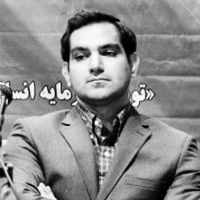Role of Human Resource Management Practices and Knowledge Inertia in Academic Entrepreneurship Actions of Sport Science Students and Graduates
Sports science faculties as a platform for preparing human capital, and the academic actors as the generators of knowledge and innovation, both desperately require an entrepreneurial action in order to transfer the knowledge and technology successfully. For this purpose, the human resource management practices can be considered as the effective and efficient strategies by the organizations (including sport science faculties), and affect the skills, attitudes, and behaviors of the individuals to do their job and
achieve the goals of the organization. On the other hand, the academic actors face new issues and complexities that need to have a flexible knowledge. The purpose of this work was to investigate the role of human resource management practices and knowledge inertia in the academic entrepreneurship actions of the sport science students and graduates.
Methodology and Approach:
The present work was applicable in terms of purpose, and descriptive-correlational in terms of the data collection method, and it was conducted in a survey. The statistical population included the students and graduates of the postgraduate studies in sports sciences in the Tehran universities who were studying in 2011-2019. The statistical sample of this work was 384 people with emphasis on the Morgan sample size table for an unlimited community. In order to collect the data, the standard questionnaires were
used, which were designed in two parts: demographic and specialized questions, and in a five-point Likert scale. The content validity of these questionnaires was investigated with the help of the corrective opinions of 8 professors in sport sciences and 3 professors in entrepreneurship, and their reliability was confirmed by the Cronbach’s alpha and composite reliability. For data analysis, the confirmatory factor analysis and the structural equations were used (SPSS20 & PLS3).
The results obtained showed that the inertia of knowledge and each one of its components, namely learning and experience, had an indirect and significant relationship with the academic entrepreneurship actions. Also, the human resource management actions and each one of its components, namely selection and employment, training and development, performance assessment, and motivation and reward, had a direct and significant relationship with the academic entrepreneurship actions. Based on the findings,
it can be concluded that paying attention to overcoming the barriers of knowledge inertia along with the human resource management measures in sports science faculties are useful and valuable strategies to achieve academic entrepreneurship and entrepreneurial actions. These results can also be considered for an effective management and performance evaluation of the sport science faculties. Accordingly, it is suggested that the future researchers, in addition to a broader analysis of the knowledge inertia and human resource management practices, address other factors such as the cultural factors, teaching methods, and backgrounds and personal characteristics that are effective in the realization and emergence of the academic entrepreneurship actions
-
Identifying ways to prevent abuse in sports: a qualitative study
Fereshteh Mohebbi, *, , Hosein Aghaee Niya
Journal of Organizational Behavioral Management in Sport Studies, -
Unlocking Athletic Excellence: Role of Cutting-Edge Sport Technologies on Athletic Sports Development
*, Javad Fasanghari, Maryam Amini
Journal of New Studies in Sport Management, Winter 2025 -
Why do athletes deny abuse in sports? Qualitative analysis of reasons and consequences of denial
Fereshteh Mohebbi, Rasool Nowruzi Seyyed Hosseini *, , Hosein Aghaeeniya
Journal of New Trends in Sport Management, -
Designing the Model of Commercialization of Sport Sciences Researches: A qualitative approach
*, Mohamad Ehsani, ,
Journal of Sport Management Review, -
The Moderating Role of Entrepreneurial Marketing in the Relationship between Intellectual Capital and Performance of Sports Enterprises
*, Ebrahim Alidoust Ghahfarokhi, Ahmad Rajabi, Mohamad Reza Miri
Sport Management,




